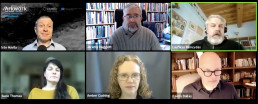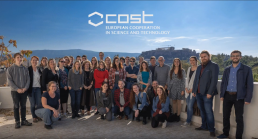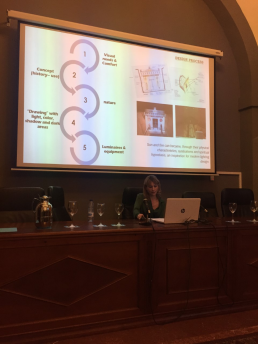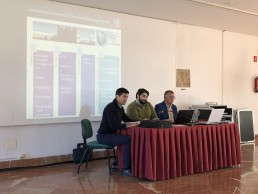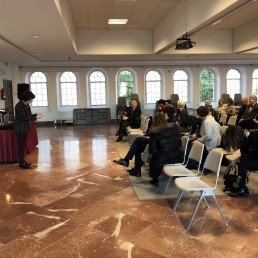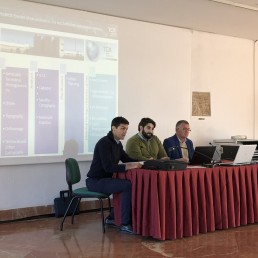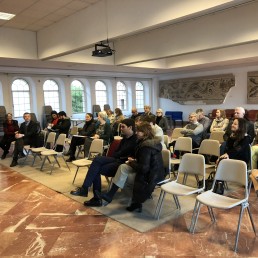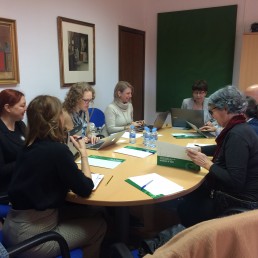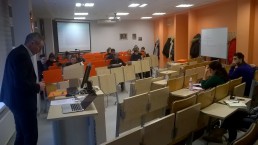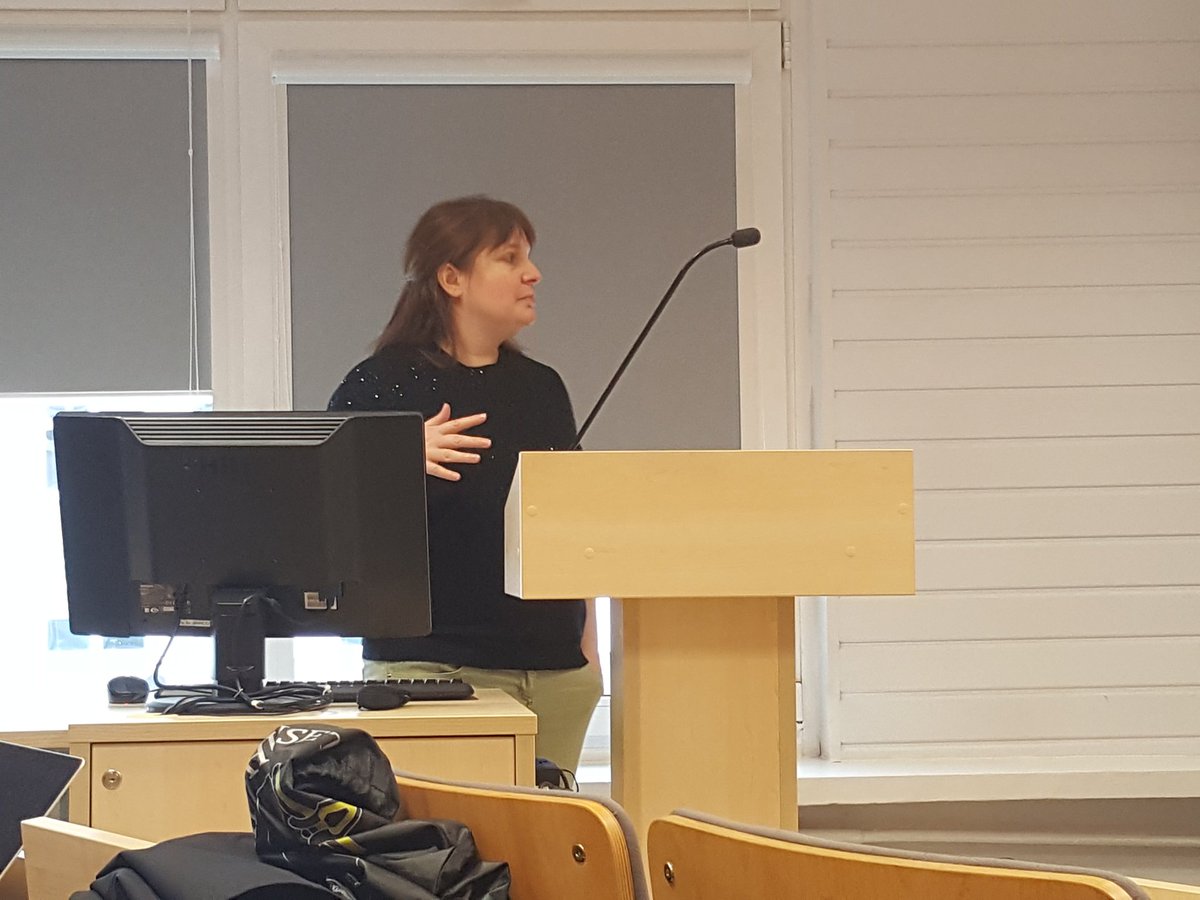Final conference materials online
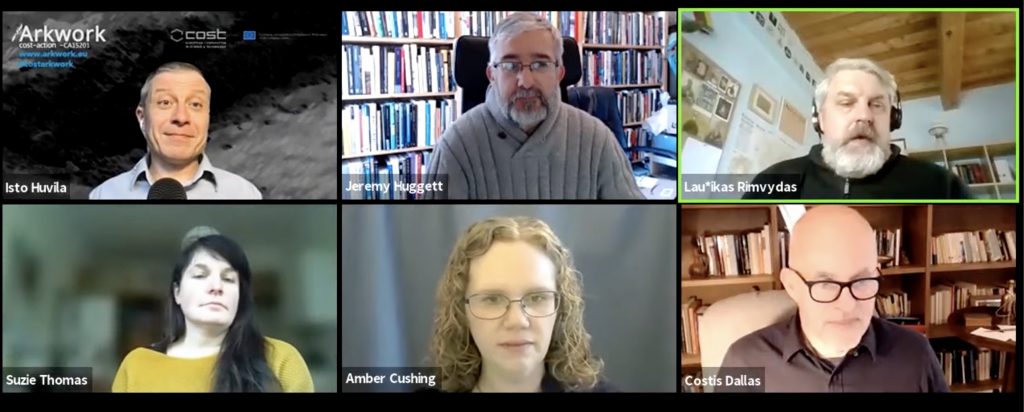
Recordings and slides from the Final Conference (Feb 10, 2021) are available on the conference webpage at https://arkwork.eu/activity/final-conference/
COST-ARKWORK Final Conference
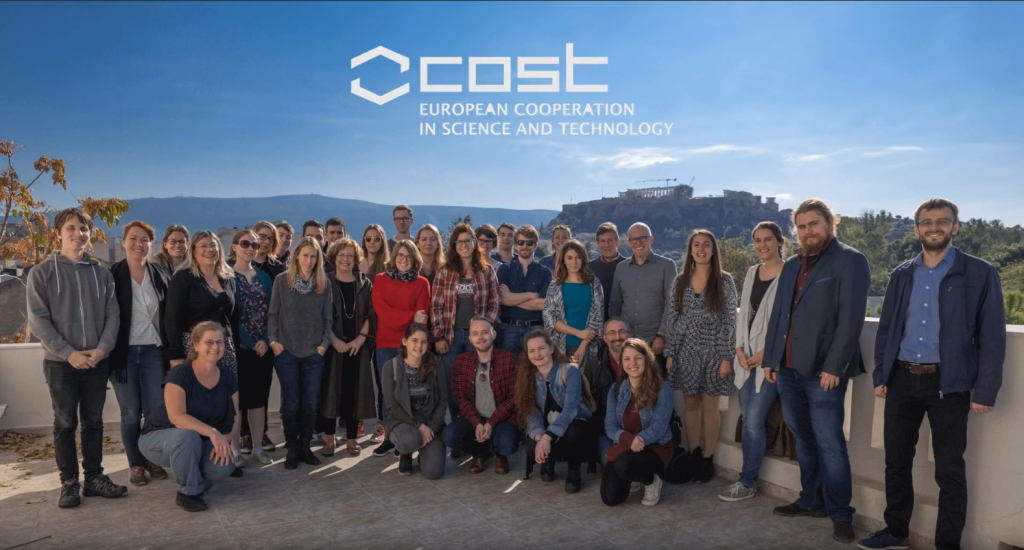
COST-ARKWORK is a network funded by the COST scheme that brings together the multidisciplinary work of researchers of archaeological practices in the field of archaeological knowledge production and use. The aim of the network is to make a major push forward in the current state-of-the-art in knowing how archaeological knowledge is produced, how it is used and how to maximise its positive impact in the society. The focus of ARKWORK is on training the next generation of scholars and stakeholders by involving future leaders of research but also high profile experts employed by the industry and public organisations through events and visits to foreign institutions is a key to the longevity of the outcomes.
After four years of intensive work, COST-ARKWORK invites participants to an online final conference on Feb 10, 2021. The programme consists of keynote lectures, showcasing of the work conducted in the network, an industry forum roundtable, and an open forum for presentations of work related to archaeological practices and knowledge work in the digital environment.
More about the conference at the conference web page at https://arkwork.eu/activity/final-conference/
Dispelling Shadows: Light, Built Spaces, and Archaeological Practices

Conference report by Pedro Luengo
On February 20th 2020, the Universidad de Sevilla (Spain), thanks to the support of COST Action CA15201 Archaeological practices and knowledge work in the digital environment, organised a conference on how light analysis have been gradually incorporated to archaeological studies.
Under the title "Dispelling Shadows: Light, Built Spaces, and Archaeological Practices" scholars from Greece, Israel, Spain and Portugal presented their different perspectives on this topic from a multidisciplinary approach. The presenters included architects, archaeologists, art historians, or engineers.

First, the presenters discussed about how digital tools allow now to analyse the ancient management of both sun and artificial light. This is important to better understand historical space and the functions of pieces such as lamps or candles. From this perspective, aesthetic questions such as how the interior lighting evolved, or which kind of activities were developed under such circumstances can be addressed, including an intangible aspect on heritage analysis. Second, light is also a tool for heritage enhancement.

On one hand, monuments are being reshaped by artificial lights giving them a new (touristic) meaning. Only in some cases designers have shown their concern on how this can be used to give a better explanation on the historical or artistic features of the structure. In addition to these aspects, sustainability as a wide term is gaining attention. Proposing sustainable solutions from a environmental perspective seems obvious under current circumstances, but also the concept of sustainable tourism is relevant here. While the monuments might promote a spectacular image of the city, this must be done as part of a process of promotion on local societies.

Archaeological remains must be first part of current societies, and as a consequence, a touristic attraction. Finally, heritage lighting also affects museum displays since they have to balance historical explanation with current accessibility requirements. As conclusion, the importance of a scientific and multidisciplinary approach to light in archaeology was reinforced. Previous initiatives, mainly based on personal taste, must be turned to deeper proposals which underline both preserved heritage and its intangible features.
Call for papers: Special Issue of the Journal of Community Archaeology and Heritage:
Talking archaeology: qualitative interviewing and focus group research in archaeology-related communities
Edited by Costis Dallas (University of Toronto & Athena Research Centre) and Ingrida Kelpšienė (Vilnius University)
We invite contributions to a JCAH special Issue on "Talking archaeology: qualitative interviewing and focus group research in archaeology-related communities". We hope that these papers will provide a springboard for yet more qualitative research of this type (especially but not exclusively in the digital environment). We also hope to encourage new insights on the implications of such research on the meaning and impact of archaeology.
- We welcome methodological approaches, theoretical reflections, and substantive discovery research on the opportunities and challenges that emerge from qualitative interviewing, life histories, focus group research, narrative analysis, conversation analysis, content analysis, ethnography, and discourse analysis.
- Work may draw from stories, sayings, conversations, and testimonies by participants in practices drawing from or related to archaeology. We are especially interested in projects which have developed outside academic archaeological research and institutional policy and management work, and in contributions by those who might offer perspectives from outside Europe.
- We will consider submissions with diverse epistemological, geographical, and theoretical orientations, ranging from formal analysis of qualitative data to critical, phenomenological, ethnographic, and arts-based approaches, as long as they draw from sayings or conversations related to archaeology with members of relevant communities.
- Manuscripts submitted for this special issue should adhere to the general guidelines of the Journal for Community Archaeology and Heritage with regard to authorial voice, structure, referencing and formatting:
http://www.tandfonline.com/action/authorSubmission?show=instructions&journalCode=ycah20 .
The guidelines also include links to an EndNote output style for the JCAH house style, as well as a style guide, a reference style guide, and a Word template.
Deadlines:
- Submission of manuscripts (4-7,000 words, with 150 words abstract): 15 October 2019
- Publication: Print publication will depend the time required to review, revise, and finalize each paper and complete the collection. However, every individual paper will be published ‘Online First’ as soon as it is typeset. At this point it will be considered ‘final’, and thus be available for each author to share, use in CVs, etc.
By teaming up with the Journal of Community Archaeology and Heritage, we will reach a broad range of authors and will serve an interested readership, by focusing attention (for the first time in such a format) on qualitative human research on ''talk and conversation" with archaeology-related communities.
Workshop "What are archaeological practices" in Aveiro
On the 5. and 6. October we met in beautiful Aveiro to discuss what archaeological practices are and to meet in the working grops. The event was hosted by the University of Aveiro. Here you can find two of the insightful presentations that we heard in the workshop.
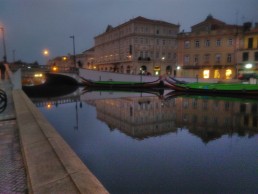
COST-ARKWORK meeting in Vilnius
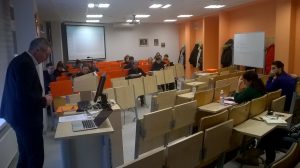 COST-ARKWORK is organising a joint meeting of all working groups, exploratory workshops for WG3 and WG4 for mapping the issues pertaining to the topics of these two groups, and a management committee meeting for the action in Vilnius, Lithuania. The event is hosted by the Faculty of Communication, Vilnius University.
COST-ARKWORK is organising a joint meeting of all working groups, exploratory workshops for WG3 and WG4 for mapping the issues pertaining to the topics of these two groups, and a management committee meeting for the action in Vilnius, Lithuania. The event is hosted by the Faculty of Communication, Vilnius University.
Meeting in social media
- Storify of COST-ARKWORK Vilnius meeting available.
Keynote presentations at the WG3 and WG4 Exploratory Workshops
- Dr. Suzie Thomas, University of Helsinki, FI : Non-professional engagements with archaeology: Problems, Prospects and Possibilities (PDF)
- Dr. Henriette Roued-Cunliffe, University of Copenhagen, DK : Participatory Heritage and amateurs (PDF)

